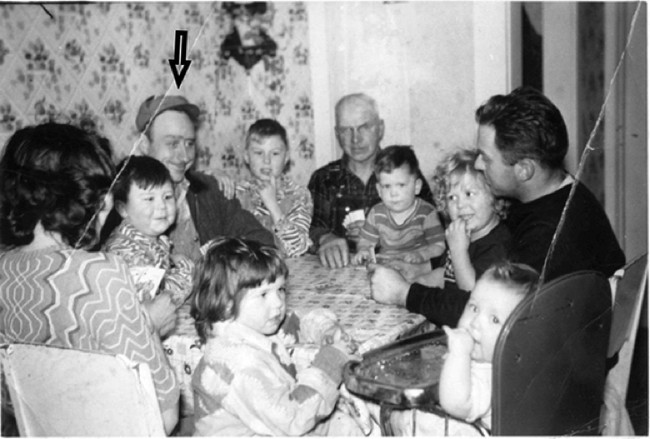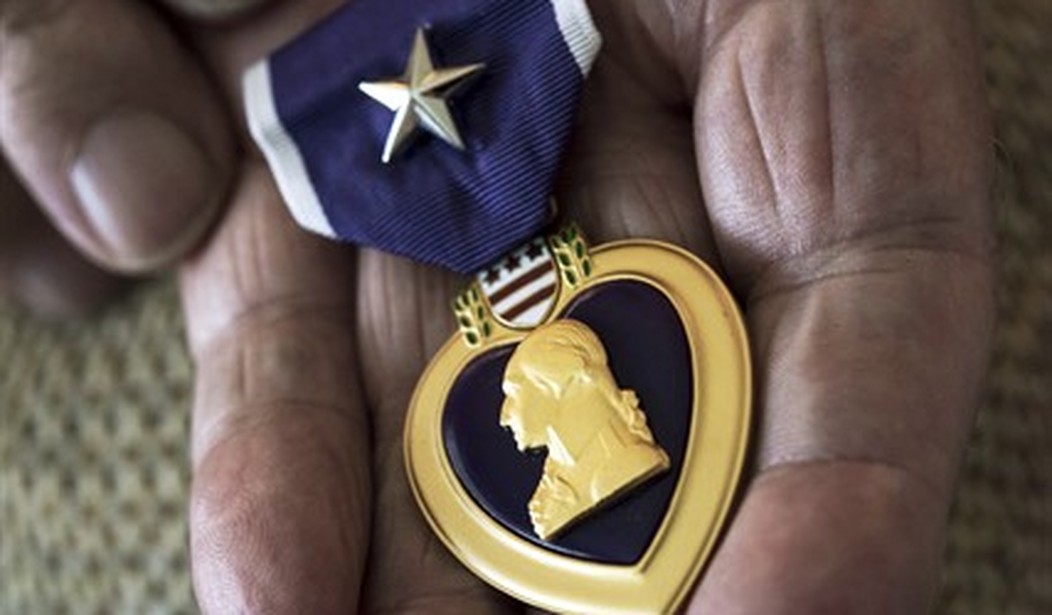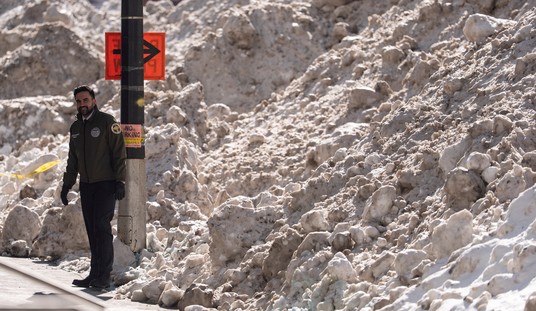Today, August 7th, is National Purple Heart Day.
Celebrated on each August 7, National Purple Heart Day offers Americans a special opportunity to say “Thank You” to the nearly two million brave men and women who fought for our nation’s freedom, and bear the physical scars of war.
To salute these brave Americans service and sacrifice, the National Purple Heart Honor Mission hosts a national tribute ceremony each August 7. The event offers Purple Heart recipients the chance to gather together to share personal narratives about the true cost of freedom and what it takes to protect our great nation.
My wife and I both served in the US Army, both of us with some active and some reserve time; we both served in Desert Storm, and I was reactivated for Joint Endeavor. Between us, we knew a fair number of people who had been awarded that little bit of purple ribbon that showed they had been wounded in combat. That bit of ribbon is the Purple Heart.
The origins of the Purple Heart go back to the nation’s very founding, when General Washington, in 1782, established the Badge of Military Merit. Three Continental soldiers were presented with this award by General Washington, then the award sort of languished until 1917, when it was re-established as the Purple Heart in 1932. Soldiers who had previously been presented with the Meritorious Service Citation Certificate, Army Wound Ribbon, or who were authorized to wear wound chevrons from America’s Great War involvement were authorized the Purple Heart retroactively, the first being awarded to General Douglas MacArthur.
The criteria for the Purple Heart are simple: It is awarded to any service member who is injured or killed in combat; the injury must have been caused by enemy action or in action against the enemy, and has to be of a degree requiring treatment by a medical officer. That last segment is rather vague and, yes, has been leveraged unfairly (but legally) in some cases.
While I have in my life met some very distinguished soldiers who were recipients of the Purple Heart (I once had the honor of shaking hands with Master Sergeant Roy Benavidez), I have a couple of examples closer to home that I would like to remember on this day.

This first is my Uncle Carl, my Mom’s oldest brother. Carl joined the Marine Corps in 1944. In 1945, he was shipped to Iwo Jima. At this point, details become sketchy, mostly because Carl refused to talk about his experiences in the Marine Corps, never speaking of those events until he died in 2012. After the war had ended, my uncle left the Marines, finding life on my grandfather’s farm a trifle dull, and joined the Navy, where he served for thirty years. Carl would tell you sea stories about his time in the Navy right up to his retirement as a Master Chief, but he would never talk about the war. The family was aware he’d been wounded but didn’t know the details until Carl married in 1947, and his new wife asked what the scar on his shoulder was from; he had to tell her of the Japanese soldier who had driven a bayonet through his shoulder, how he’d nearly died of sepsis, and how his shoulder bothered him still (and for the rest of his life) although he never talked about it.
Carl lived to be 92. While he never discussed the war, on the wall in his living room, as long as he lived, was his Purple Heart in a small frame.

The second is my Uncle Don, my Dad’s older brother. Don joined the Army in 1943 and volunteered for the Parachute Infantry, mustering with the 101st Airborne. After training and shipping to Europe in the weeks following D-Day, he jumped into Eindhoven, was with the Airborne at Bastogne, and moved into Germany proper in early 1945. Then, in March of 1945, a retreating German 88mm artillery battery stopped to throw a few shells at the advancing Americans, and one of those shells hit a tree near where Uncle Don was crouched. Flying fragments hit his forehead; his comrades took his weapon (as well as a captured German P-38 pistol he had taken from a dead German officer) and left him for dead. Follow-on troops noticed him still breathing several hours later; Don was evacuated and survived, although he lived the rest of his life on disability due to brain damage, with a metal plate for a forehead and a glass eye.
Don never was able to fully remember what happened to him. What information the family had came from letters from men in his platoon. I remember him as a withdrawn, quiet, gentle-natured man. His Purple Heart was kept, in its original box, in the nightstand next to his side of the bed, until he died at 75 years of age.
My family was very lucky in the Second World War. Unlike many local families in their little eastern Iowa community, the four young men – my Dad and my Mom’s second brother, in addition to the two I mention here – all went to serve, and all came home, two of them unwounded although not unmarked by the conflict. Many families were not so lucky, including the older couple who were neighbors to my parents when they were farming near Fairbank; they had lost their only son in the Pacific in 1943.
The Purple Heart is seen by many as the mark of heroism. By others, it’s seen as a tool to further political ambitions. What it is, is a mark that a soldier, Marine, airman, or sailor has made a sacrifice for his country; in some cases, a small sacrifice requiring ten minutes of a medic’s time and a stick-on bandage; in others, a large sacrifice, requiring six feet of earth. But today is a good day to remember those men (and more recently, women) who, throughout the history of the United States, have made that sacrifice. Our country is a better, safer place due to their efforts.
Too few people seem, today, to appreciate what the Purple Heart means or what it represents. And that’s too bad. But we can remember. And we will.














